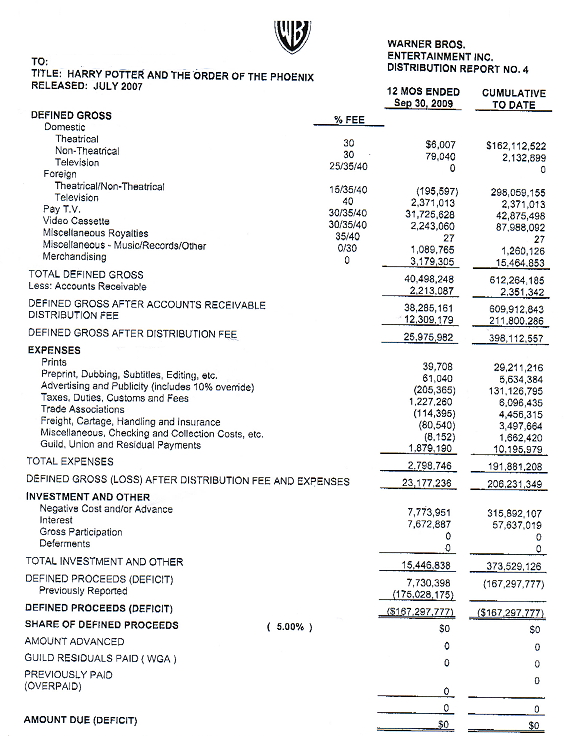From Forrest Gump to Men in Black, Hollywood’s most iconic hits share a strange secret: they never turned a profit – on paper.

Forget about girl math and boy math – welcome to Hollywood math, or better said: Hollywood accounting. It’s the reason why box office giants like Forrest Gump, Men in Black, or even a Harry Potter movie are officially labeled as financial flops. Despite earning hundreds of millions, these blockbusters somehow “lose” money – at least on paper. You’ve maybe heard of reducing profit to pay fewer taxes, but this method is undoubtedly mean-spirited. Here’s everything you need to know about this phenomenon.
The Art of Losing Money
Hollywood studios often use creative accounting methods to reduce reported profits. They set up separate companies for each film, charging high fees for distribution or marketing services back to the parent company. Studios also allocate excessive overhead costs to individual films, further reducing their reported profits.
This means they assign general expenses – like administrative salaries, rent, or utilities – in unusually high amounts to specific movies, making those films look less profitable. Although ethically questionable, these practices are legal in the entertainment industry.
Classic examples include Forrest Gump, which had a budget of $55 million and grossed over $600 million worldwide, yet was reported as a $62 million loss. Men in Black cost $90 million to make and earned almost $600 million, but according to Sony, it still hasn’t broken even. Even Return of the Jedi, with a budget of around $32 million and massive global earnings of approximately $480 million, was declared unprofitable. Lucasfilm reportedly used these accounting methods to avoid paying actor David Prowse – the man who portrayed Darth Vader in costume – his agreed percentage of the film's profits. And yes, at least one Harry Potter film – part of a billion-dollar franchise – was also magically unprofitable on paper.
By the way, if you're an economics major and a cinephile, feel seen, because here's the actual distribution report that explains how Harry Potter and the Order of the Phoenix made no profit.

Beating the Hollywood Math Game
To avoid getting shortchanged, smart talent negotiates for a share of the gross revenue – that is, the total box office intake. Since these numbers are public and can't be fudged like internal costs, it offers real security. Lawyers and agents often push for this with the golden rule: “Don’t take net points – take the gross” so creators can guarantee they’re truly part of the film’s success. It’s a simple but powerful shift in leverage.
Just like Qui-Gon Jinn wisely said: "There's always a bigger fish" in real life, there's always a bigger a**hole. Robin Williams was especially happy about Good Will Hunting's success because he had a backend deal granting him an even bigger percentage once the movie surpassed a certain amount, rumored to be $100 million. Since Williams had a net profit deal, the producer Harvey Weinstein couldn't use Hollywood accounting to reduce Williams' earnings, so he simply stopped showing the film in theaters – even though it had Oscar hype – just because he (allegedly) didn't want to pay Williams his increased box-office share.
Is Hollywood accounting clever business or just plain unfair? How would you fix the system? Tell us in the comments!


































